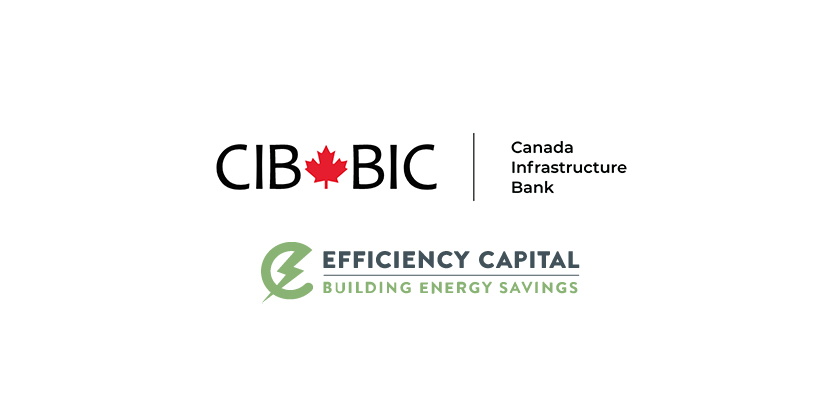Efficiency Capital Advancing Building Retrofit Projects with CIB’s $50M Investment

June 7, 2024
The Canada Infrastructure Bank (CIB) and Efficiency Capital have recently formalized their financial partnership to help small and medium-sized building owners across Canada decarbonize their facilities.
Businesses and building owners have already been onboarded to work with Efficiency Capital on new energy retrofit solutions, with three projects in Alberta, Ontario and New Brunswick. Together, these retrofits will reduce 10,000 tonnes of CO2e over their life.
Efficiency Capital, one of Canada’s first Energy-as-a-Service (EaaS) companies, partners with owners to deliver fully funded deep retrofit solutions which reduce energy use and GHG emissions, generating environmental, social, and economic results.
Examples of such upgrades can include lighting, roof insulation, heating-ventilation-air conditioning, heat pumps, automation systems, EV charging and renewable energy sources such as solar PV and geothermal. Some projects are expected to achieve a reduction in GHG emission by up to 50 per cent.
Efficiency Capital is an ‘aggregator’ under the CIB’s Building Retrofits Initiative (BRI), which provides long-term investments for building retrofits to modernize and improve the energy efficiency of existing buildings. The CIB created the aggregator program so that building owners both large and small can access its capital for low-carbon investments.
With buildings currently accounting for 18 per cent of Canada’s greenhouse gas emissions, modernizing these assets is critical to meeting Canada’s climate change goals.











![Guide to the Canadian Electrical Code, Part 1[i], 26th Edition– A Road Map: Section 56](https://electricalindustry.ca/wp-content/uploads/2022/11/Guide-CE-Code-2.png)



